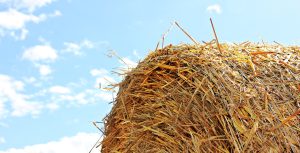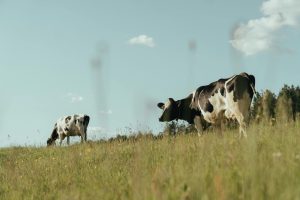Álvaro García
Accurate feedstuff analysis forms a fundamental foundation for success in modern livestock production. At Dellait Analytical Services, we grasp the critical importance of precise analysis in optimizing livestock nutrition and performance. Through our comprehensive testing and analysis services, we offer essential insights into the nutrient composition of feed ingredients, aiding informed decision-making for farmers and nutritional consultants.
Feedstuff analysis serves as a vital element in formulating balanced diets, enhancing production efficiency, and ensuring overall livestock health and well-being. Parameters such as moisture content, mineral levels, and fermentation profiles play key roles in determining the nutritive value of feed ingredients. Dellait Analytical Services provides a comprehensive array of cutting-edge analyses to meet the diverse needs of livestock professionals, delivering accurate and reliable results to support their management practices.
Analyses
- Moisture: Indicates the water content of feedstuff, crucial for determining nutrient composition and informing proper storage practices.
- Dry Matter (DM): Represents the portion of feed remaining after removing moisture, fundamental for calculating nutrient concentrations.
- Crude Protein (CP): Measures total protein content, including both true protein and non-protein nitrogen, essential for various physiological functions in animals.
- Available Protein: Calculated by subtracting indigestible protein (ADICP) from total crude protein, crucial for assessing protein quality and nutrient utilization in livestock diets.
- ADICP (Acid Detergent Insoluble Crude Protein): Measures indigestible protein content, aiding in assessing protein quality and informing feeding strategies for optimal livestock performance.
- Soluble Protein (SP): Indicates the percentage of soluble protein relative to total crude protein, offering insights into protein quality and utilization.
- Ammonia % of SP: Signifies the presence of non-protein nitrogen compounds, aiding in assessing protein degradation and microbial protein synthesis in the rumen.
- Degradable Protein % of CP: Represents dietary protein susceptible to degradation by rumen microbes, contributing to microbial protein synthesis.
- NDICP (Neutral Detergent Insoluble Crude Protein): Indicates cell wall-bound protein content, affecting protein digestibility and nutrient utilization.
- ADF (Acid Detergent Fiber): Comprises cellulose, lignin, and insoluble proteins, influencing digestibility and feed intake, particularly in ruminants.
- aNDFom (Adjusted Neutral Detergent Fiber Organic Matter): Provides a more accurate estimate of digestible fiber, affecting rumen fermentation and nutrient utilization.
- Lignin: Represents the indigestible fraction of fiber, impacting feed digestibility and potentially limiting feed intake.
- NFC (Non-Fiber Carbohydrates): Excludes fiber and serves as a readily available energy source, influencing feed palatability and digestibility.
- Starch: A major energy source for animals, undergoing microbial fermentation in the rumen, providing energy.
- WSC (Water-Soluble Carbohydrates): Includes carbohydrates soluble in water, influencing feed fermentation and rumen pH.
- ESC (Ethanol Soluble Carbohydrates): Represents carbohydrates soluble in ethanol, crucial for energy production and fermentation.
- Crude Fat: Measures total lipid content, serving as a concentrated energy source and provider of essential fatty acids.
- Fatty Acid Profile: Influences milk fat content and energy metabolism, essential for cell structure and function, and synthesis of hormones and signaling molecules.
- ASH (Mineral Content): Represents inorganic mineral content, impacting mineral availability and nutrient utilization.
- Total Digestible Nutrients (TDN): Measures digestible nutrients, influencing feed energy and overall value.
- Net Energy for Lactation (NEL), Growth (NEG), and Maintenance (NEM): Indicates energy available for various functions in animals.
- Metabolizable Energy (ME) and Digestible Energy (DE): Represent energy content digestible by animals, impacting energy availability for maintenance and production.
- Minerals (Ca, P, Mg, K, S, Cl): Essential for various physiological functions in animals.
- Fermentation Products (% Ammonia, % Lactic Acid, % Acetic Acid): Crucial in silage quality assessment, regulating rumen pH and microbial protein synthesis.
- VFA Score: Evaluates silage fermentation quality, synthesizing various measurements into a single metric.

- uNDFom: Indicates undigested fiber fractions at different time points during in vitro incubation, offering insights into fiber digestion rates.
- NDFDom: Proportions of digestible NDF relative to total NDF content, influencing rumen fermentation and nutrient utilization.
Understanding feedstuff efficiency and composition is vital for optimizing animal nutrition and performance. At Dellait Laboratory Services, we provide accurate and reliable feedstuff analysis to support livestock producers worldwide. Analyzing feedstuffs using the comprehensive set of analyses provided yields crucial insights into their nutrient composition and fermentation characteristics. This information is essential for optimizing livestock nutrition and performance. By relying on the analytical results above, farmers and nutritional consultants can make informed decisions regarding feed formulation and management practices. Additionally, insights into fermentation profiles, including levels of ammonia, lactic acid, and acetic acid, aid in assessing silage quality and optimizing rumen fermentation. Overall, feedstuff analysis provides the foundation for formulating balanced diets, enhancing production efficiency, and promoting overall animal health and well-being.
© 2025 Dellait Knowledge Center. All Rights Reserved.









